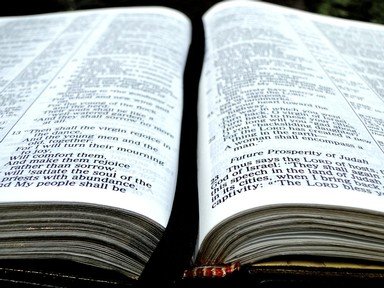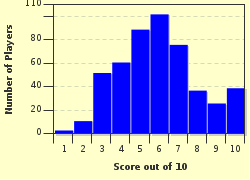Quiz Answer Key and Fun Facts
1. "'I will send my messenger ahead of you, who will prepare your way' - 'a voice of one calling in the desert, "Prepare the way for the Lord, make straight paths for him."'" (Mark 1 v. 2-3)
Mark begins his gospel by quoting these words from the prophet Isaiah. Whom does he see as being the fulfilment of this prophecy?
2. Mark gives no definite autobiographical detail in his gospel. Which of the following, though, is often used to argue that he didn't come from Israel?
3. The phrase "messianic secret" was coined by scholars to describe which seemingly surprising tendency of Jesus as reported in Mark's gospel?
4. Mark is keen to show his readers that Jesus is the Son of God. On several occasions, therefore, he records Jesus being recognised as such. Which of the following does NOT acknowledge Jesus in this way?
5. The suffering of Jesus is another strong theme in Mark. Which of the disciples, at Caesarea Philippi, refused to acknowledge that Jesus "must suffer many things and be rejected by the elders, chief priests and teachers of the law, and that he must be killed and after three days rise again" (Mark 8 v. 31)?
6. Of the synoptic gospel writers (Matthew, Mark and Luke), Mark gives greatest prominence to the final week of Jesus' life. How many of the 16 chapters cover this short period?
7. Chapter 13 is devoted to the end times and second coming of Jesus. Which of the following, does Jesus say, knows the timing of this event?
8. A young man is described in chapter 14 whom many have deduced to be the gospel's author. What is distinctive about him?
9. The earliest manuscripts of Mark do not have the present ending. At which point do they conclude the story?
10. One verse in the closing chapter of Mark's gospel has spawned which unusual phenomenon in some American churches?
Source: Author
glendathecat
This quiz was reviewed by FunTrivia editor
CellarDoor before going online.
Any errors found in FunTrivia content are routinely corrected through our feedback system.

